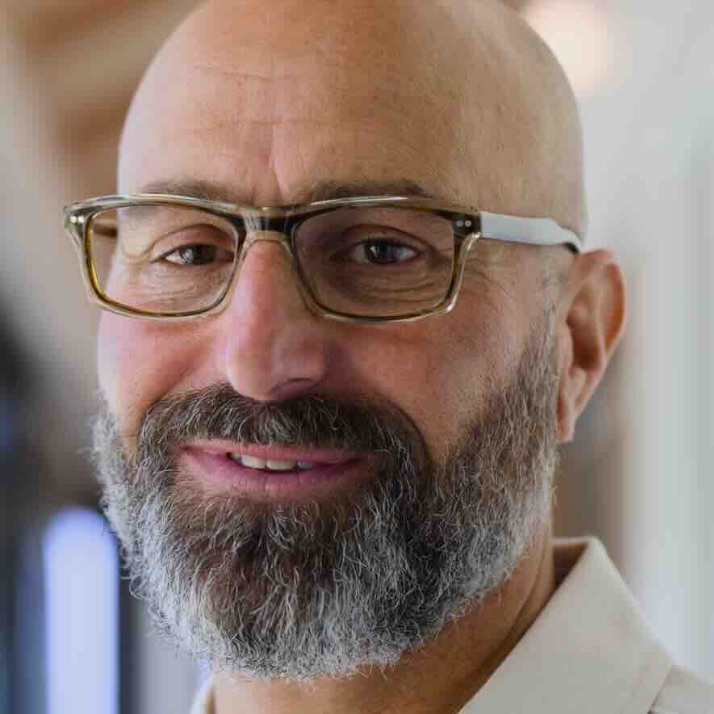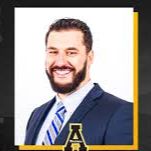Exploring Treatment Choices for Gambling Addiction in Detroit
Finding help for Gambling Addiction in Detroit can fit your life, whether you prefer in-person sessions in neighborhoods like Midtown, Corktown, or the East Side, or teletherapy from home during Michigan winters. Individual therapy can focus on triggers, budgeting, and relapse prevention, while group options offer peer support and accountability—useful if you live farther from downtown or rely on DDOT or the QLINE. Many Detroiters navigate rush-hour slowdowns on I‑75, I‑94, and the Lodge, so teletherapy or providers near work in Downtown or New Center can cut commute stress. MiResource lets you filter providers by therapy approach (such as CBT or motivational interviewing), insurance accepted, and real-time availability to match your schedule.
If you’re balancing shift work at the plants or hospitals, MiResource can surface clinicians with evening or weekend openings and group programs near transit or with easy parking. You can choose between individual sessions for tailored strategies and group therapy for community-based support, including hybrid formats that reduce travel from neighborhoods like Rosedale Park or Jefferson‑Chalmers. Filters also help you find clinicians experienced with co-occurring concerns like stress, anxiety, or debt-related strain. With clear options and location-aware filtering, MiResource makes it simpler to start care that fits how Detroit moves.
Local Programs and Community Partners
Detroit residents navigating Gambling Addiction concerns can tap the Michigan Problem Gambling Helpline (1-800-270-7117) for 24/7 counseling, referrals, and funding options, alongside supports through the Detroit Wayne Integrated Health Network for county-based care coordination. Gamblers Anonymous and SMART Recovery groups meet across the city—from Downtown near Greektown and Campus Martius to Midtown by Wayne State—offering peer-led recovery and practical tools. Local community centers and churches in neighborhoods like Corktown and the East Side frequently host meetings, creating accessible, stigma-reducing spaces. These grassroots options pair well with MiResource’s therapist directory, where you can find clinicians in Detroit trained in gambling-specific therapies.
Community anchors also play a vital role: Mariners Inn in the Cass Corridor, Southwest Solutions in Southwest Detroit, Team Wellness Center near Eastern Market, and Black Family Development on the east side provide counseling, case management, and recovery-focused groups that can include gambling disorder support. Detroit Recovery Project’s peer services on the west and east sides add lived-experience mentorship and linkage to benefits, housing, and employment resources that stabilize recovery. Libraries, rec centers, and neighborhood hubs along Woodward and 8 Mile often host wellness workshops and financial literacy sessions that complement treatment for gambling-related stress. Together with these programs, MiResource helps you identify Detroit therapists who collaborate with community partners to build a comprehensive, local support network.
Urgent Help for Gambling Addiction in Detroit
If you’re in immediate danger or thinking about self-harm related to Gambling Addiction, call 988 (Suicide & Crisis Lifeline) or the Michigan Problem Gambling Helpline at 1-800-270-7117 (24/7). For local crisis support and a Mobile Crisis Team in Detroit/Wayne County, contact the Detroit Wayne Integrated Health Network (DWIHN) 24/7 Crisis Helpline at 800-241-4949 (TTY 711). Go to the nearest emergency room, such as Detroit Receiving Hospital (313-745-3000), Henry Ford Hospital–Detroit (313-916-2600), Ascension St. John Hospital (313-343-4000), or DMC Sinai-Grace Hospital (313-966-3300). If you’re not in immediate danger but need urgent, same-day help, go to a nearby urgent care center or dial 211 to find the closest option fast.
Key Insights Into Gambling Addiction
Gambling Addiction refers to repeatedly betting money or valuables despite growing risks, and it can develop into a pattern that’s hard to control. Common signs include thinking about gambling often, chasing losses, hiding betting from loved ones, mood swings, and money problems. Understanding these patterns matters because early support in Detroit can reduce harm, protect finances and relationships, and help you regain control.
Spotting Potential Warning Signs
Noticing changes in your gambling habits or money worries can feel overwhelming, but you’re not alone—many people in Detroit face this and get support. Paying attention to early signs can help you take small, manageable steps toward feeling more in control. Reaching out for help is a strong, positive choice.
- Spending more time or money on gambling than planned, even when you meant to stop
- Chasing losses—gambling again to try to win back money you’ve lost
- Hiding gambling from loved ones or feeling guilty or anxious about it
- Strained finances, such as unpaid bills, borrowing money, or using savings meant for essentials
- Mood changes tied to gambling, like irritability, restlessness, or feeling low when not gambling
- Skipping work, school, or important activities because of gambling or recovering from it
What Contributes to Gambling Addiction
Many people in Detroit struggle with Gambling Addiction, and it’s not a personal weakness or lack of willpower. Gambling Addiction problems arise from a mix of factors that can affect anyone. Understanding these influences can reduce shame and make it easier to seek support. You deserve care and practical help.
- Biological:
- Family history of addiction or gambling problems
- A brain reward system that’s extra sensitive to wins and excitement
- Other mental health conditions (like ADHD or depression) that raise risk
- Psychological:
- Stress, anxiety, or using gambling to cope with difficult feelings
- Impulsive or sensation-seeking traits
- Beliefs about “near-misses,” luck, or being “due” for a win
- Environmental:
- Easy access in Detroit to casinos, sports betting, and online gambling
- Financial stress, job loss, or housing instability
- Friends, family, or workplaces where gambling is common or encouraged
How Gambling Addiction Shapes Daily Life
If gambling is taking over your days in Detroit—from late nights at the casinos to chasing bets on your phone—it can crowd out time, drain money, and add stress. You might miss shifts, skip classes, or pull away from people you care about, even when you intend to cut back. Small steps and the right support can help you regain control and enjoy your life in Detroit’s neighborhoods again. Reaching out for care today can protect your health, relationships, and future.
- Work: missed shifts, reduced performance, job risk
- School: poor focus, skipped classes, slipping grades
- Family: tension at home, broken trust, less quality time
- Relationships: conflicts with friends/partners, isolation
- Finances: unpaid bills, mounting debt, risky borrowing
- Physical health: poor sleep, headaches, fatigue, stress-related issues
- Mood and mental health: anxiety, irritability, low mood, hopelessness
Effective Treatments for Gambling Addiction
Evidence-based care can help people in Detroit reduce Gambling Addiction urges, rebuild control, and restore financial and relationship health. With the right mix of therapies and support, change is possible at any stage. Explore these proven options and take the next step toward recovery today.
- Cognitive Behavioral Therapy (CBT): Teaches you to identify triggers, challenge Gambling Addiction thoughts, build coping skills, and practice relapse-prevention strategies.
- Motivational Interviewing (MI)/Motivational Enhancement Therapy (MET): Strengthens motivation and commitment to change through collaborative goal-setting and resolving ambivalence.
- Group Therapy and Peer Support (e.g., Gamblers Anonymous): Provides accountability, shared strategies, and encouragement from others who understand the recovery process.
- Medication Options (e.g., naltrexone/nalmefene): Can reduce Gambling Addiction urges and cravings when prescribed and monitored by a qualified clinician.
- Financial Counseling and Self-Exclusion Tools: Supports debt management, budgeting, credit repair, and setting up casino/online self-exclusion and blocking software to reduce risk.
- Family/Couples Therapy: Improves communication, sets healthy boundaries, and engages loved ones as allies in recovery.
Quick Answers for Gambling Addiction Therapy in Detroit
1. Can Gambling Addiction happen to anyone?
Yes—Gambling Addiction can affect anyone, regardless of age, gender, or background, and it’s not a sign of weakness. In Detroit, many people face pressures and access to betting that can make it easier to slip into harmful patterns. Risk can be higher with factors like stress, social isolation, trauma, financial strain, co-occurring mental health concerns, or a family history of addiction. You’re not alone, and support is available to help you regain control.
2. Is Gambling Addiction just stress or something more serious?
Everyday stress can cause worry or tension, but Gambling Addiction becomes something more serious when there’s a persistent urge to bet, chasing losses, hiding behavior, or when money, work, or relationships are getting hurt. If you find it hard to cut back, need to gamble with larger amounts, gamble to escape stress, or feel irritable when trying to stop, it may be more than temporary stress. You’re not alone—Gambling Addiction is treatable, and many people recover. Effective, confidential help is available in Detroit, including therapy and support.
3. What are some misconceptions about Gambling Addiction?
Many people think problem gambling is just a lack of willpower, but it’s a treatable health condition that affects the brain’s reward system, and support in Detroit can help you regain control. Another myth is that only “high rollers” or irresponsible people are affected; in reality, Gambling Addiction problems can impact anyone—across ages, incomes, and with online betting as well as casinos. Some believe if you can afford your losses it isn’t a problem, yet gambling can still harm relationships, work, and mental health. Recovery is possible, and compassionate, nonjudgmental help is available.
4. Can Gambling Addiction improve without treatment?
Some people in Detroit find that Gambling Addiction urges lessen for a time on their own, but this often doesn’t lead to lasting change. Working with a professional greatly improves outcomes, helping you build skills to manage triggers and make healthier choices. Treatment also reduces the risk of relapse and offers structured support when cravings return. You don’t have to do this alone—Detroit-based therapists and programs can help you make steady, sustainable progress.
5. How do I talk about my Gambling Addiction with family or friends?
Start by choosing a calm time to share the basics and what you need: “I’m getting help for Gambling Addiction, and I want to be honest about it,” and “I’d appreciate support by checking in and not lending me money.” Set clear boundaries like, “Please respect my boundary of not discussing bets or spot-covering cash,” and let them know how they can encourage healthy routines. Offer resources they can explore with you, such as Gamblers Anonymous meetings in Detroit, the Michigan Problem Gambling Helpline (1-800-270-7117), and MDHHS Gambling Disorder Program materials. Remind them—and yourself—that recovery is possible and you’re not alone.
6. Who is qualified to diagnose Gambling Addiction in Detroit?
In Detroit, Gambling Addiction disorder can be diagnosed by licensed psychiatrists, psychologists, primary care physicians, psychiatric nurse practitioners, and qualified behavioral health clinicians such as Licensed Clinical Social Workers, Licensed Professional Counselors, and Marriage and Family Therapists. MiResource only lists vetted Detroit providers who hold the appropriate Michigan licenses to deliver accurate diagnoses and safe, evidence-based treatment.
7. What usually happens in a first therapy session for Gambling Addiction?
In your first Gambling Addiction therapy session in Detroit, you’ll start with simple introductions and a relaxed conversation about what brings you in. You’ll be invited to share some personal history and any recent challenges with Gambling Addiction at a pace that feels comfortable. Together, you and the therapist will discuss your concerns, patterns, and what support you’re hoping for. You’ll then collaborate on clear, realistic goals and next steps to help you move forward.













